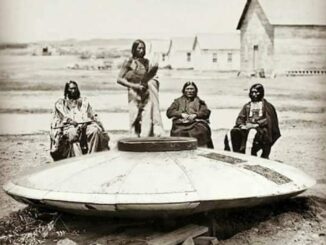
In the early 2000s, the idea of an electric car competing with gasoline-powered vehicles was considered almost laughable. Electric cars were seen as slow, impractical, and far from stylish. Enter Elon Musk — an entrepreneur with a bold vision, relentless perseverance, and an unshakable belief that electric vehicles could not only match traditional cars but surpass them in performance, design, and desirability.
Nearby car dealerships
Today, Tesla is a household name, and electric vehicles (EVs) are rapidly becoming the future of transportation. This transformation did not happen overnight — it was the result of Musk’s unyielding determination, technological innovation, and an ability to bet against the odds. Let’s explore how Elon Musk and Tesla fundamentally changed the auto industry forever.
The Beginning: Betting Big on a Dream
In 2004, Elon Musk joined Tesla Motors (founded by Martin Eberhard and Marc Tarpenning) as chairman of the board after leading Tesla’s initial funding round. Musk wasn’t content to be a passive investor — he quickly became the company’s guiding force, deeply involved in design, engineering, and overall vision.
Tesla’s first major project was the Tesla Roadster, a sleek, all-electric sports car built on a Lotus chassis. It wasn’t just an experiment; it was proof that EVs could be fast, desirable, and high-performing. The Roadster stunned the world by delivering over 200 miles of range on a single charge — something no other electric vehicle at the time could achieve.
Despite massive technical hurdles, supply chain issues, and financial struggles, Musk and Tesla persisted.
Fighting Against the Odds: Near Bankruptcy and Beyond
Nearby car dealerships
The late 2000s brought the global financial crisis, and Tesla nearly collapsed. Musk famously poured almost his entire fortune — accumulated from earlier successes like PayPal — into saving the company.
At one point, Musk had to choose between funding Tesla or SpaceX. He decided to risk everything and save both. Speaking in later interviews, Musk recalled sleeping on the Tesla factory floor, working 20-hour days, and facing constant ridicule from critics and the media.
His perseverance paid off: in 2012, Tesla introduced the Model S, a luxury electric sedan that would set new standards for the industry. It wasn’t just good for an electric car — it was one of the best cars ever made, period.
The Model S won Car of the Year awards, broke safety records, and captured the imagination of a global audience.
Setting New Standards: Innovation After Innovation
Tesla didn’t stop at the Model S. Elon Musk pushed forward an aggressive strategy to make EVs more affordable and accessible:
Model X (2015): An all-electric SUV with futuristic Falcon Wing doors.
Model 3 (2017): A mass-market sedan that brought Tesla’s magic under $40,000.
Model Y (2020): A crossover SUV that became Tesla’s best-selling vehicle.
Along the way, Tesla built a massive Supercharger network to solve the “range anxiety” problem, developed Autopilot for semi-autonomous driving, and pioneered over-the-air software updates, treating vehicles more like smartphones than traditional cars.
Today, Tesla’s Gigafactories in Nevada, Texas, Germany, and China are producing cars, batteries, and energy products at an unprecedented scale.
A Broader Impact: Changing the Entire Industry
Before Tesla, major automakers largely ignored electric vehicles. Today, nearly every automaker — from Ford and GM to BMW and Toyota — is racing to electrify their lineups.
Tesla’s success forced a paradigm shift:
Investment in EVs has surged globally.
Governments around the world are implementing stricter emission standards and incentivizing EV adoption.
Battery technology has rapidly advanced, thanks largely to Tesla’s innovation and competition.
Without Tesla, the timeline for electric vehicle adoption would likely have been delayed by decades.
Nearby car dealerships
Musk’s Unique Approach: Love Him or Hate Him
Elon Musk is a controversial figure. His management style is intense, his tweets often spark massive market movements, and he’s not afraid to speak bluntly, even at the risk of public backlash.
However, few can deny that his ability to think big, persist through adversity, and inspire global movements is unmatched in the modern world.
Musk’s work at Tesla has shown that true innovation comes from taking risks, embracing failure, and never giving up — even when the entire world doubts you.
Looking Ahead: What’s Next for Tesla?
Tesla isn’t slowing down. The company is expanding into new frontiers:
The futuristic Cybertruck, set to redefine the pickup truck.
The Tesla Semi, aiming to revolutionize freight transport.
Advances in Full Self-Driving (FSD) technology.
Expansion into energy storage and solar power solutions.
Musk has even hinted at a robotaxi network and affordable mass-market vehicles in the near future. The goal? To accelerate the world’s transition to sustainable energy — not just cars, but every part of the economy.
Nearby car dealerships
Conclusion: A Legacy of Vision and Tenacity
Elon Musk and Tesla have not only redefined the auto industry; they have inspired a new generation to think bigger, dream wilder, and act bolder. Their journey proves that vision and relentless perseverance can overcome seemingly impossible odds.


